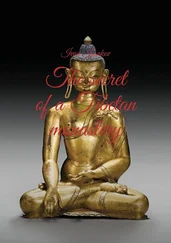The elephant trainer was very pleased.
“Take these stones as a souvenir, stranger craftsman!” exclaimed the chief and poured a number of them into Pandion’s hand. Some of them were bigger than a plum-stone in size. “These stones come from the southern plains and are found in the rivers there. There’s nothing in the world that’s harder or purer than these stones. When you’re back in your distant land, you can show people the marvels of the south acquired by the Elephant People.”
Pandion thanked the old man and went away, hiding the gift in the bag that held Yakhmos’ stone.
“Don’t forget, come tomorrow!” the chief called after him.
Back in their hut the former slaves talked excitedly about what would happen as a result of the success that attended Pandion’s work. Their hopes in the early continuance of their journey were strengthened. It seemed that there was every reason to expect the Elephant People would let them go and show them the true road.
At the appointed hour Pandion and Kidogo appeared at the house of the chief. The old man beckoned to them to come up. They sat at the feet of the elephant trainer, hiding their excitement with difficulty.
For some time the chief sat in silence and when he spoke he addressed them both at once.
“I’ve taken counsel with the other chiefs and they agree with me. Half a moon from now, after the grand hunt, we shall be sending a big expedition to the west for Coaling nuts and for gold. Six elephants will go through the forest and farther to the upper reaches of a big river, seven days march from here. Give me that stick,” said the chief to Pandion.
The old man drew the outlines of a big gulf where the sea cut deep into dry land, and Kidogo gave a faint cry. The chief drew a wavy line to indicate a river with two branches at its head and placed a cross in a junction of the waterways.
“The elephants will go this far, you’ll follow them and will pass easily through the forest. From there you’ll have to go alone, but it will take you five days more to reach the sea…”
“O father and — prince!” exclaimed the excited Kidogo, “you are our saviour. That river flows within the bounds of my country, and I know the plateau where the gold is found…” The Negro jumped up in ecstasy.
“I know,” continued the old chief, with a somewhat supercilious smile, “I know your people and your country and was at one time acquainted with one of your strongest chiefs, Yorumefu.”
“Yorumefu!” exclaimed Kidogo. “He’s my mother’s brother!”
“Good,” said the chief, interrupting Kidogo. “You will give him my greetings. Have you understood everything I’ve told you?” Without waiting for an answer he finished by saying, “Now I want to speak to your friend.” The chief turned to Pandion. “I feel that you’ll become a great man in your own country if you succeed in returning home. Ask me whatever you will and I will answer you.” “For a long time I’ve been thinking of asking you how you subdue the elephants,” said Pandion. “Or perhaps it’s a secret,” he added doubtfully.
“The training of elephants is a secret to fools alone,” smiled the old chief, “Any man of wisdom can easily guess how it’s done… Apart from the secret, however, it implies hard and dangerous work and unlimited patience. Brains aren’t sufficient, there’s real hard work as well. There are but few tribes in this land that possess the three qualities my people have — intellect, industry and unbounded courage. You must understand, stranger, that a full-grown elephant cannot be trained. We catch them when they’re still quite young. A young elephant is trained for ten years. Ten years of persistent labour are required for the elephant to begin to understand the commands given him by man and to do the necessary work.”
“Ten years!” exclaimed the astounded Pandion.
“Yes, not a moment less, that is, if you have correctly judged the character of the elephant. And if you make a mistake you will not manage the task even in fifteen years. There are stubborn animals and stupid ones amongst the elephants. And then, you must not forget that the capture of young elephants is a matter of great danger. We have to capture them with our own hands, without the aid of trained elephants because they may go back to join the herd. The trained elephants help us when the herd has been driven off and the youngsters are made fast. Several of our bravest men are always killed during an elephant hunt.” The old chief’s voice took on a note of sorrow. “Tell me, have you seen the exercises that our young warriors perform? You have. ‘Good. These exercises are also necessary training in the art of elephant hunting.”
On several occasions Pandion had seen the unusual games played by the Elephant People. The warriors planted two high posts on a level open space and fixed a bamboo cross-piece between them at a height of about five cubits from the ground.
They would then take a long run, make a peculiar sort of sideways leap into the air and fly over the cross-bar. The jumper’s body would double up, almost in two, and fly into the air with the right side forward in the direction of the jump. Pandion had never before seen anybody jump so high. Some of the best jumpers could leap to a height of almost six cubits. Pandion was filled with astonishment at the great skill of the Elephant People but could not understand what use they could put this ability to. The words of the stern old chief did something to explain the significance of these exercises.
After a short pause the chief continued in a louder’ voice:
“Now you see how difficult a matter it is. There are other tribes that hunt elephants. They kill them with heavy spears hurled down from trees, drive them into pits or creep up to them when they are asleep in the forest. I’ll do this for you.” The old chief slapped himself on the knee. “I’ll order the elephant hunters to take you with them on; the next hunt. It will be soon, before our expedition leaves for the western forests. Do you want to witness the glory and the torment of my people?”
“I do and I thank you, chief. And may my companions go with me?”
“All of you would be too many. Invite one or two to go with you, more would hamper our hunters.”
“Then let my two friends go with me — he can go,” Pandion indicated Kidogo, “and one other…”
“You mean the morose-looking man with the thick beard?” asked the chief, meaning Cavius; the young Hellene affirmed the correctness of his supposition.
“I also want to have a talk with him, tell him to come to me,” said the old man. “I suppose you’re in a hurry to tell your companions that we are willing to help them. When we appoint the day of the hunt you will be informed.” The old chief dismissed the two friends with a gesture.
To the menacing rumble of tom-toms the tribesmen assembled for the hunt. Some of them were mounted on elephants, loaded with ropes, food and water, the remainder went on foot. Pandion, Kidogo and Cavius, armed with their heavy spears, joined the latter party. Two hundred hunters crossed the river and set out across the plains in a northerly direction, making for a range of bare stony hills faintly visible in the blue haze above the horizon. The hunters moved so fast that even such experienced walkers as our three friends had difficulty in keeping pace with them.
The ground that lay to the south and east of the range of hills was perfectly flat, with huge expanses of level, burnt-up grassland. The wind raised clouds of dust over the yellow plain, obscuring the dull greenery of the trees and bushes. The nearer cliffs were clearly visible, but the rocks beyond them were almost hidden by a greyish-blue mist. Steep rounded peaks jutted up like the skulls of gigantic, phantom elephants; while the lower rocks were hunched up like the backs of huge crocodiles.
Читать дальше












